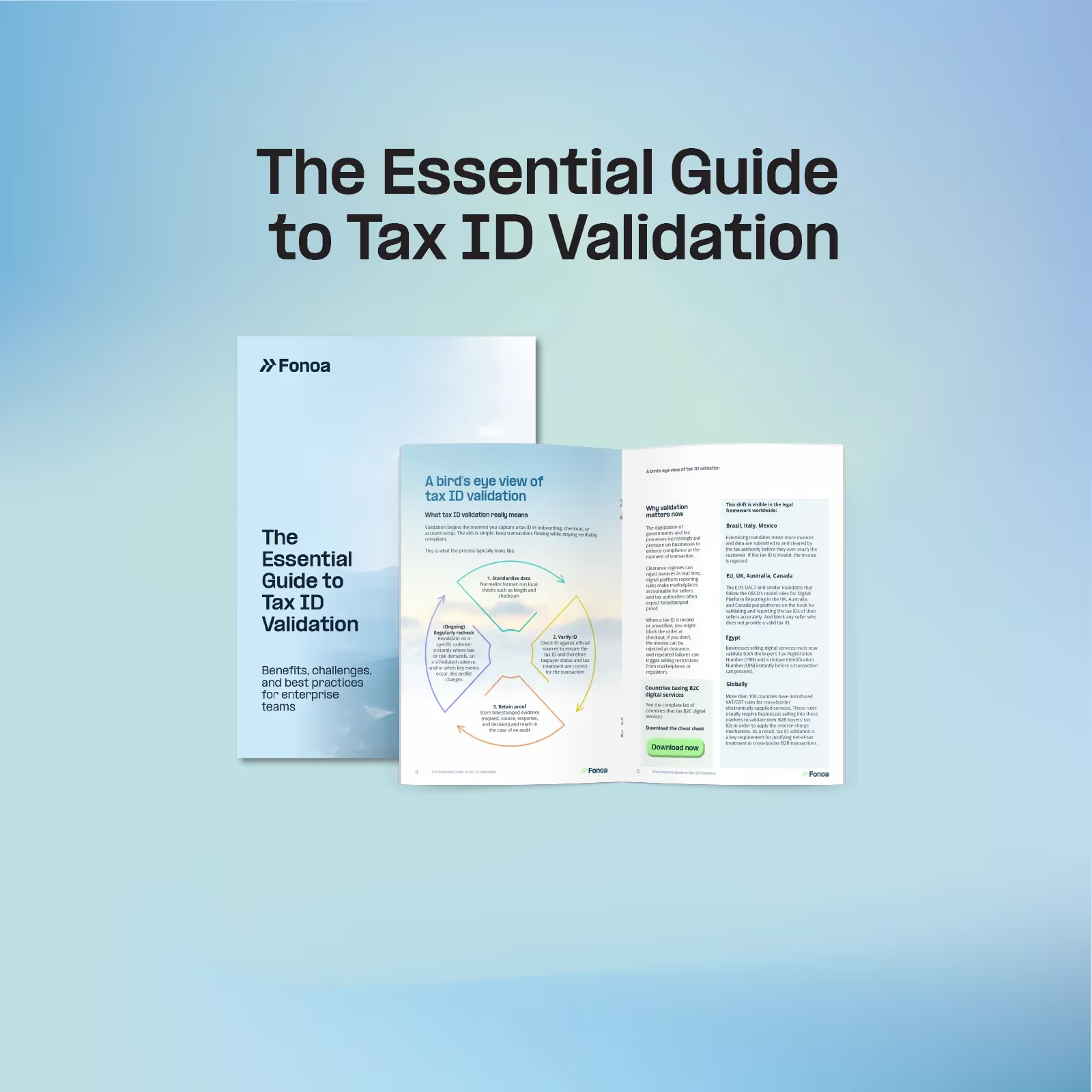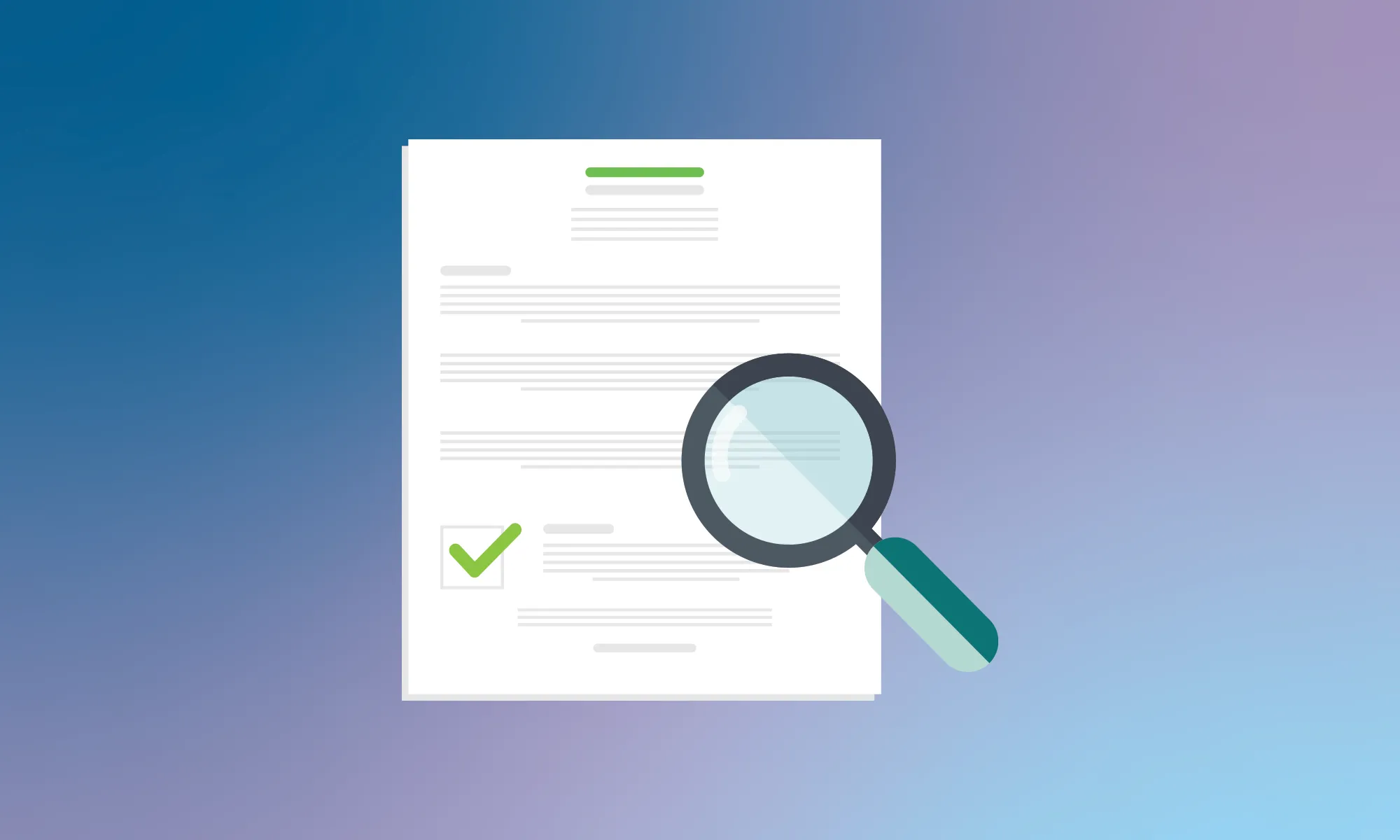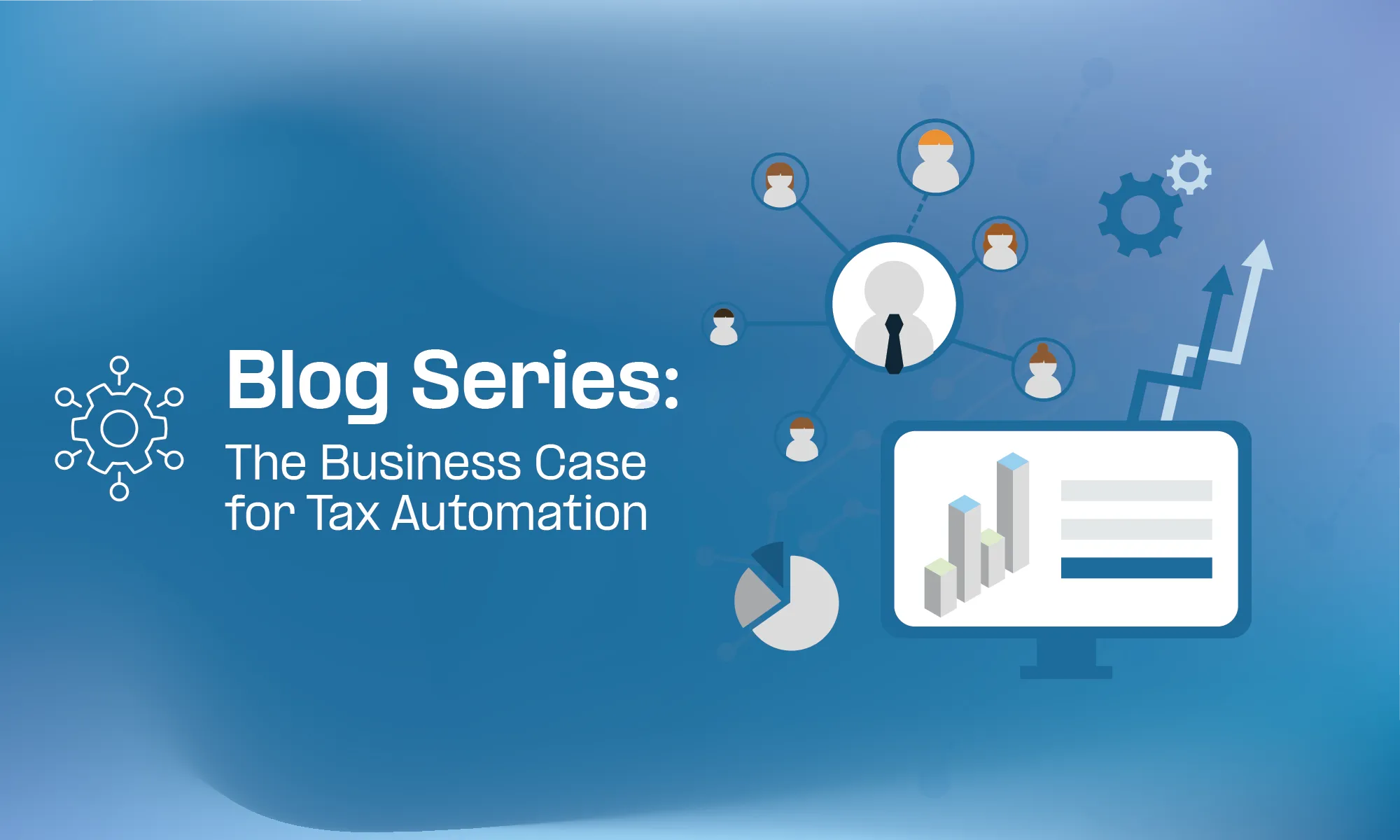How much time does your finance team spend each month chasing down incorrect customer tax IDs?
Most logistics CFOs don't track this closely. But when finance teams actually map it (the emails back and forth, the invoice rejections, the stuck VAT claims, the manual corrections, the missed revenue), the number is usually significant enough to matter.
Logistics built its reputation on speed, but manual processes hold it back
The logistics industry has been moving goods globally for decades. But the world around it has fundamentally changed.
Customers expect instant onboarding. Ecommerce sellers want to start shipping the same day they sign up. Enterprise shippers compare your activation speed to digital-first competitors who can onboard in minutes.
Meanwhile, tax authorities worldwide are accelerating the shift toward digital compliance and real-time reporting, driving one of the biggest transformations in how businesses manage tax and data.
The old model of "reconcile it later, fix it in the quarterly VAT return" doesn't work anymore.
In most logistics companies, customer tax ID handling still looks the same as it did a decade ago, manual entry, no validation at capture, and reconciliation weeks later when something breaks. That disconnect is where costs compound and deals get delayed.
Finance teams across departments see the same symptoms
Your teams might be saying:
Finance: "We keep getting invoices rejected because customer VAT numbers don't validate"
AR: "We can't close certain invoices. The tax IDs don't match what the tax authority has on file"
Tax: "We can’t always prove correct VAT treatment because customer details are incomplete or invalid"
Operations: "Customers are frustrated that activation takes days when our competitors do it in hours"
Audit & Compliance: "The auditor flagged hundreds of customer records with invalid or incomplete tax IDs"
These feel like isolated issues. Different departments, different symptoms.
But they all trace back to the same root cause: tax IDs get entered wrong at onboarding, nobody validates them in real time, and the errors surface weeks later when you try to actually use them.
Tax ID errors happen because the process itself breaks down
Sales teams copy-paste from emails. Customers transpose digits or use old registration numbers. Different countries have different formats (some with spaces, some without, some with country prefixes). Nobody checks if the tax ID is even valid at the moment someone enters it.
Most CRMs and ERPs don't validate against official tax authority databases. They just store whatever someone types in.
Invalid tax IDs flow into your system on Day 1, and nobody discovers the problem until much later.
Weeks after onboarding, finance tries to invoice the customer or file for VAT recovery. The tax authority rejects it. Now you're stuck in a reconciliation loop: chasing the customer via email, correcting records manually, resubmitting documentation, hoping it works this time.
Modern logistics companies onboard hundreds of customers per month across multiple jurisdictions. Even a small percentage of tax ID issues creates ongoing manual correction work that compounds monthly.
And with real-time tax regimes, invalid tax IDs block transactions immediately. The cost of errors just went up. The window to fix them just got smaller.
These errors create measurable financial impact
When activation takes days instead of hours, prospects drop off. Revenue slips away during extended activation processes.
Invalid or missing tax IDs delay invoicing, impacts working capital and cashflow, create uncertainty around VAT treatment, and increase exposure during audits.
Every rejected invoice or manual correction costs time and trust. Finance hours get spent on reconciliation that shouldn't exist. Tax team bandwidth gets consumed by preventable errors. Customer success manages frustrated clients who expect faster activation. Capacity gets redirected from strategic work to manual cleanup.
Meanwhile, digital first logistics platforms are onboarding customers in minutes while traditional operators are still measured in hours or days. Speed to activation is becoming a competitive differentiator, and manual tax ID processes create hidden drag on speed.
Across the logistics sector, these issues compound. One Global logistics enterprise discovered its slow onboarding process was costing millions each year in missed revenue opportunities and compliance inefficiencies.
Real-time tax ID validation prevents errors instead of fixing them
Real-time tax ID validation shifts the focus from fixing errors to preventing them.
For most logistics businesses, the challenge isn’t awareness, it’s embedding validation seamlessly into existing workflows: you can prevent tax ID errors, not just reconcile them after the fact.
The solution isn't hiring more finance people to fix errors faster. It's preventing errors from entering your system in the first place.
Real-time tax ID validation means automatically checking every VAT number, GST registration, or tax ID against official tax authority databases at the moment a customer provides it during onboarding.
Before it enters your billing system, ERP or master data records. Before you invoice. Before it becomes a reconciliation problem.
Here's how it changes the process:
Old way: Customer provides tax ID → Sales enters it → Weeks pass → Finance tries to invoice → Tax authority rejects it → Email loop begins → Manual correction → Hope it works this time→Customer leaves due to poor experience
New way: Customer provides tax ID → System validates against official database in seconds → Invalid? Customer corrects it immediately → Only validated tax IDs enter your system → Finance invoices cleanly the first time
It's a shift from reconciliation to prevention. From fixing errors downstream to catching them at the source.
One logistics company cut onboarding from 7 hours to 5 minutes
A global logistics company was onboarding customers across multiple countries, processing thousands of tax IDs annually. Their manual validation process (checking VIES portals, waiting for tax team availability, emailing customers for corrections) took an average of 7 hours per customer.
They didn't realize how much this was costing them until they mapped the full customer journey from signed contract to first shipment.
Tax ID validation was the hidden bottleneck slowing everything down.
After implementing automated tax ID validation, they:
- Reduced onboarding time from 7 hours to under 5 minutes (customers activate the same day they sign)
- Retained over $9 million annually through faster deal closure and accurate VAT validation
- Strengthened compliance posture across all jurisdictions, reducing audit risk and administrative overhead
- Gained confidence that every customer and supplier record meets tax authority standards, automatically
These aren't theoretical efficiencies. They're measurable financial outcomes that improve both top-line growth and compliance resilience.
Read the full customer story →
Validate tax IDs in real time with Fonoa Lookup
As governments push toward real-time reporting and e-invoicing mandates, automated tax validation is becoming foundational infrastructure for competitive logistics. The companies that can onboard faster and stay tax compliant everywhere will win on both speed and trust.
If your finance team is spending hours fixing tax IDs that were wrong from Day 1 or manually validating them before invoices can go out, the issue isn’t your people, it’s the process. When validation happens too late or takes too long, revenue gets delayed, activations slow down, and opportunities slip away while teams chase data that should have been right from the start
Fonoa’s real-time Tax ID Validation solves both problems: accuracy and speed, as we validate tax IDs in real time across more than 115 countries, integrating directly into your existing onboarding workflows. Our low-latency API brings compliance automation without disrupting legacy systems.
Validate globally, in real time. Onboard customers in minutes, not hours. Maintain tax integrity automatically, every time. Protect revenue and reputation.
Learn more about Fonoa Lookup →
















